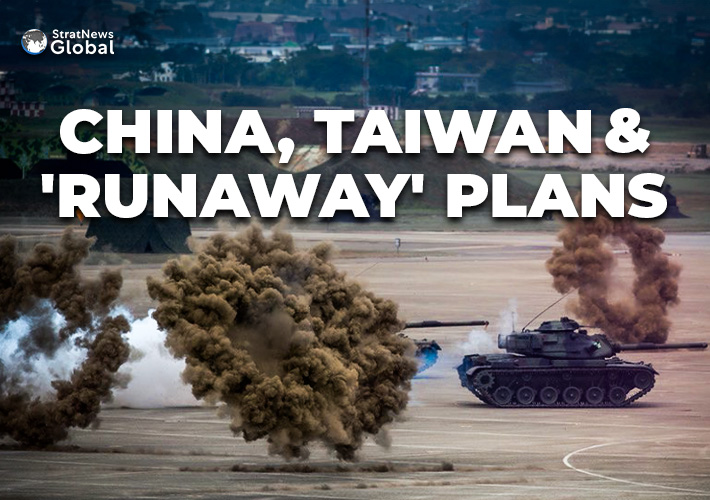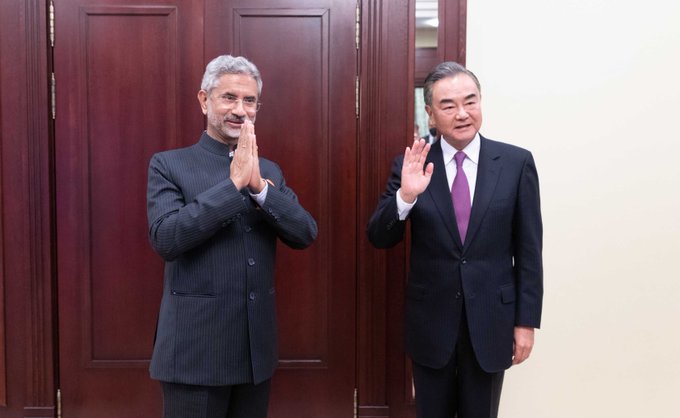These are annual military exercises held in Taiwan, Penghu, Kinmen and Matsu known as the Han Kuang drills. These drills include combat exercises to test war readiness of Taiwan in the event of a war or an aggression So why bring up these annual drills that took place in July 2023 now? A detailed review and analysis of over 400 reports done by a Taiwan organisation has revealed that Chinese state media fulled claims that Taiwan’s leadership was planning to escape in the event of a war with China. Even the Han Kuang drills were shown as rehearsals for Taiwan’s leadership to desert the island. According to an analysis done for Reuters by an NGO based in Taiwan, Chinese-state media and affiliated organisations allegedly fuelled reports that Taiwan’s outgoing President Tsai Ing-wen would flee the island in a US plane in the event of war with China. These reports first surfaced in 2021 and gained traction just before the elections in January this year. Taipei has consistently denied these stories. The NGO, Information Environment Research Center, identified more than 400 narratives depicting military exercises as scenarios where Taiwan’s leadership would abandon its post. This pattern, according to the NGO, suggested a deliberate effort by Beijing to destabilise the ruling Democratic Progressive Party. On June 10, 2021, in a Fujian Daily story, a U.S. military C-17 transport plane, which had visited Taiwan that month, was referred to as a “runaway plane” for Taiwan’s leadership. Jaw Shaw-kong, who was the KMT’s vice presidential candidate, had wondered if Tsai would resign and flee on a plane “if the enemy is at the gates, like what happened in Afghanistan.” This was in an Facebook post in August 2021. Senior KMT lawmaker Fu Kun-Chi, used the same runaway analogy during a December 10 rally in the run up to the Presidential polls. “Those who cannot run away would be like you ordinary folks gathered here,” Fu had said then. The analysis also found approximately 20% of the 439 stories were attributed to the CCP-backed Fujian Daily Press Group, which operates a network of Taiwan-focused news portals. Between April 2021 and January 13, 2024 – the day of elections in Taiwan – the nation’s military drills were framed as rehearsals for Tsai Ing-wen’s escape in articles of which 110 originated from Beijing-based outlets, including the overseas editions of People’s Daily and Global Times. Another 169 articles came from Hong Kong, a historical centre for Chinese-language media, while 130 were published from Fuzhou, the capital of Fujian. Neither Fujian Daily Press Group nor the other mentioned media outlets responded to requests from Reuters for comment. IORG’s research covered over 1,300 Chinese official news outlets, more than 500,000 accounts on YouTube, Weibo, and Douyin, as well as over 1.2 million Chinese-language Facebook pages. China’s Taiwan Affairs Office rubbished IORG’s claims as ‘fabricated and ill-intentioned’. So did these external influences have any measurable impact in Taiwan? It’s difficult to make exact inferences. In the January elections, Tsai Ing-wen’s deputy, Lai Ching-te won the Presidential polls.
















